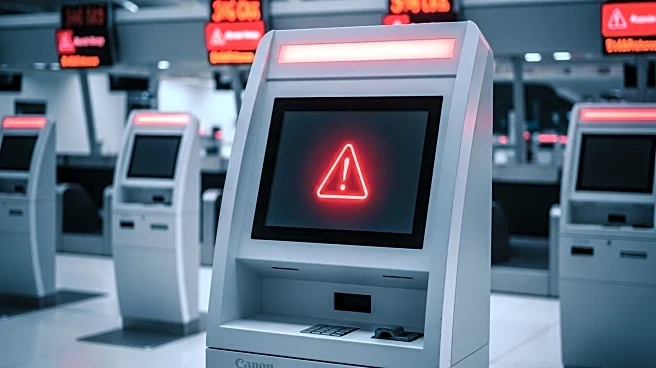What is the story about?
What's Happening?
A cyberattack has affected electronic check-in and baggage systems at several major European airports, including Heathrow, Brussels, and Berlin. The disruption, attributed to a technical issue with software provided by Collins Aerospace, has led to significant delays and manual check-in processes. Heathrow Airport has reported hundreds of flight delays, with passengers experiencing long queues and extended waiting times. The National Cyber Security Centre is collaborating with Collins Aerospace and affected airports to assess the impact and restore operations. The European Commission is monitoring the situation closely, although it has stated there is no indication of a widespread or severe attack.
Why It's Important?
The cyberattack highlights vulnerabilities in the aviation industry's reliance on digital systems for operations. The disruption at Heathrow, Europe's busiest airport, underscores the potential for significant economic and logistical impacts when such systems fail. Airlines and passengers face delays, missed connections, and increased operational costs. The incident serves as a reminder of the importance of cybersecurity measures in protecting critical infrastructure. It also raises concerns about the preparedness of airports and airlines to handle cyber threats and maintain service continuity.
What's Next?
Airports and airlines are expected to continue manual check-in operations until the issue is resolved. The National Cyber Security Centre and Collins Aerospace are working to restore full functionality. Passengers are advised to check flight statuses and arrive at airports with sufficient time for manual processing. The incident may prompt airports and airlines to review and strengthen their cybersecurity protocols to prevent future disruptions. Additionally, regulatory bodies may consider implementing stricter cybersecurity standards for the aviation industry.
















